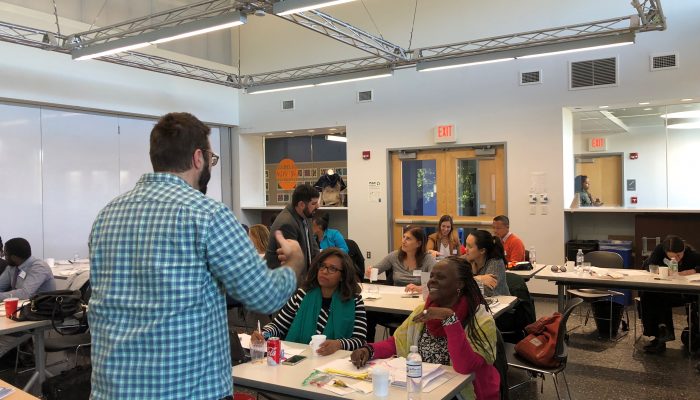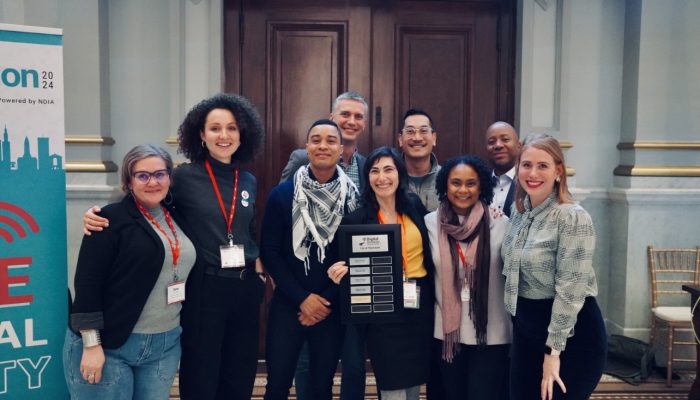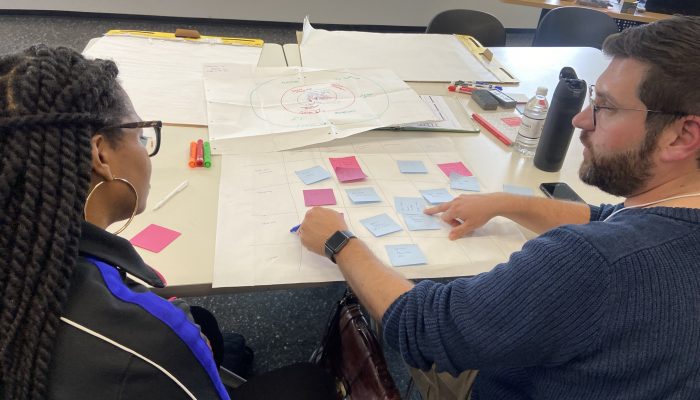Week 4: Invaluable Lessons & Systems Thinking
The fifth cohort of the Academy for Municipal Innovation kicked off in October 2017. This is a blog series written by participants about their experiences in the program. Today’s author is Brittany Borden, Organizational, Culture and System Transformation Specialist for the Project Management Office.
We are four weeks into the 2017 cohort of the City of Philadelphia’s Municipal Innovation Academy, and what I have learned from professors and classmates is invaluable not only to my professional development but, to the level of confidence I have in myself as well. For the first time, I can take the often wild and crazy ideas floating in my head and translate them into useful illustrations of understanding. This growth began at the start of the first class; we debated on what innovation is; how the process of innovating can improve City services; and most importantly why incorporating some of these small shifts in thinking can challenge the status quo and transform how we approach problems and our work.
Every class we learn basic rules of engagement, like the principles of a methodology and when or why to use to use it. Then we get right into learning by applying the method to a classmates’ problem statement or our own. As a requirement of our acceptance into the academy, every applicant was asked to develop a problem statement that describes an issue we would like to work through while in the Academy. Mine was how do we, the Department of Behavioral Health and Intellectual disAbility Services (DBHIDS), encourage both those we serve and our employees to view their mental/emotional health as equally, if not more important than their physical health? While working on this statement, I quickly came to find that this statement was too broad and was difficult to measure. Each week my classmates and I learned a new design tool to help further develop and create solutions to our problem statements.
The fourth week and my favorite week was systems thinking. Systems thinking is a term often thrown around with little explanation of what it is and how we can get there. Today, I learned how. Systems thinking is a process in which organizations can examine how elements and interactions within their system can create problems, also, understanding how structure influences performance.
The cohort immediately jumped into the class activity by identifying if our departments are indeed a system, by answering three simple questions; can you identify parts; do the components affect each; and do the parts together produce an effect that is different from the impact of each part on its own? From those answers, we created elements of stock and flow diagram to depict the departments we represent visually.
I must admit creating the stock and flow diagram was the most challenging part of the academy. The mental agility required to develop stocks and system boundaries, connect them through influence arrows, variables, then complete it with feedback loops, reinforcing feedback loops and then balancing feedback loops, required looking at my problem statement more expansively, analyzing it then identifying leverage points to intervene and make a change. My problem statement again itself did not change, but the scope of my statement increased to look at the number of people modeling “healthy and well behaviors” and identifying ways to improve the number of people exhibiting those behaviors.
What I have learned in these past four weeks is an exciting foundation on which I hope to build. I am excited for the next few weeks and look forward to working with DBHIDS and other City agencies to spur innovative change so that all Philadelphians can thrive!
What is the Academy for Municipal Innovation?
AMI is a seven-week program that introduces participants to the principles and practice of innovation. Participants will learn to integrate tools and techniques of innovation drawn from design thinking, system thinking, business analytics, and ethnographic research to discover innovative solutions to complex real world problems. The program will be delivered in a studio setting, anchored in Jefferson University’s (formerly Philadelphia University) signature nexus learning pedagogy of active, collaborative, and real world learning. Each session will introduce practical techniques & tools that can be immediately applied at work to inspire innovation through collaboration.
Throughout the program, the City (Innovation Management) will offer opportunities to further develop the skills and tools that participants are learning in the classroom. Brown bag lunches, innovation consulting sessions and workshops will take place throughout the fall to encourage students to engage with the material in the context of their everyday portfolios, and to provide them with a space to meet past graduates and learn about how they’ve integrated innovative thinking into their roles.




